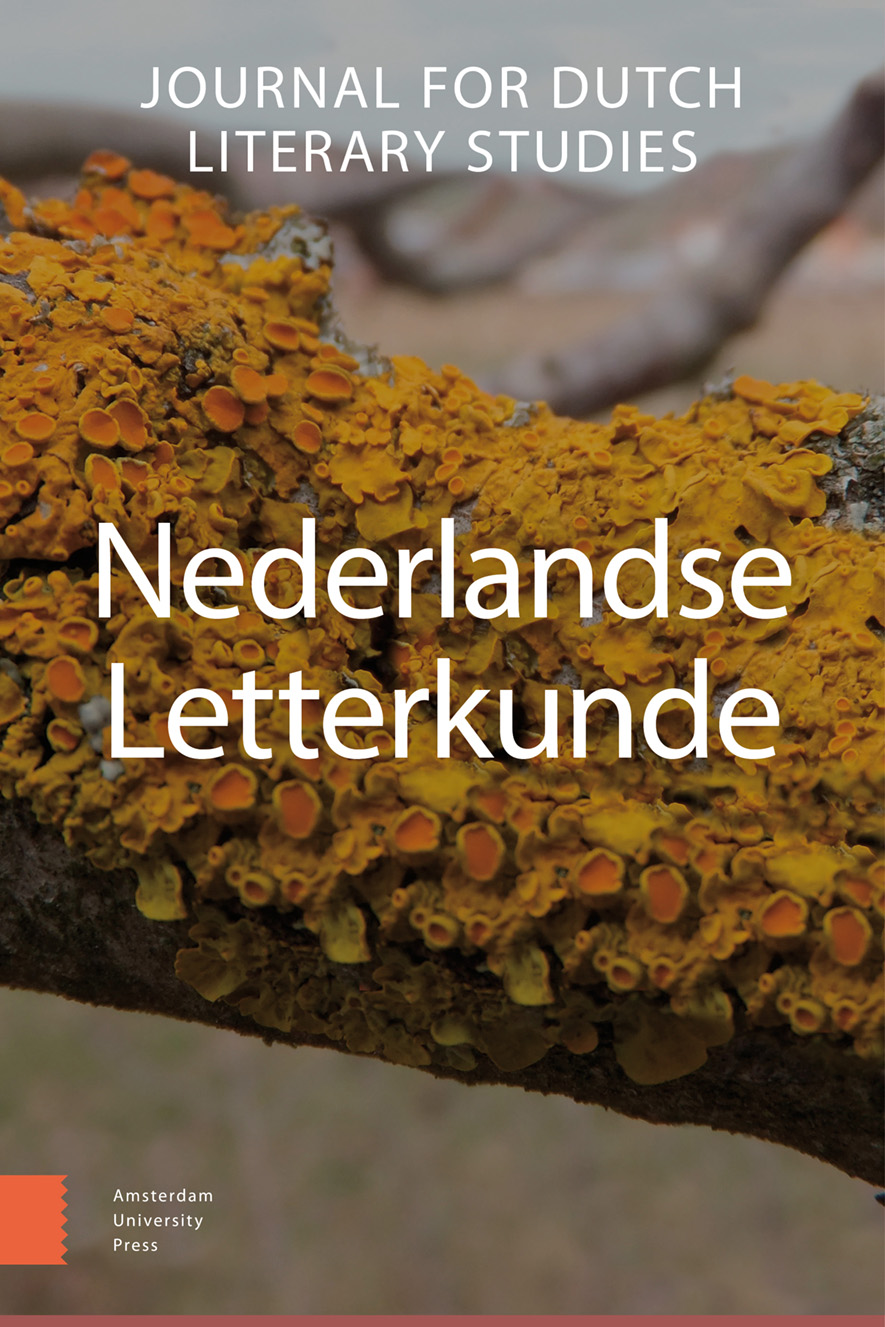-
oa O Mensch! - De vormen van de humanitairexpressionistische poëzie in Vlaanderen
- Amsterdam University Press
- Source: Nederlandse Letterkunde, Volume 18, Issue 1, jan. 2013, p. 26 - 46
Samenvatting
This article explores some eye-catching formal characteristics of the so-called humanitarian variant of literary expressionism as it emerged in the postwar Flemish literary context around 1920, such as the frequent use of rhetorical apostrophe. In particular, it focuses on the typical enunciative patterns in the avant-garde poetry written by Paul van Ostaijen, Wies Moens and Victor Brunclair in the years 1918-1921. What distinguishes these poetical experiments from the more classical kinds of poetry of that time, it is argued, is the fact that the complex enunciative structures of these poems are foregrounded, due to, for instance, the multiplication of the enunciative roles, the underdetermination of these roles, and the changing nature of the relations between these roles.


